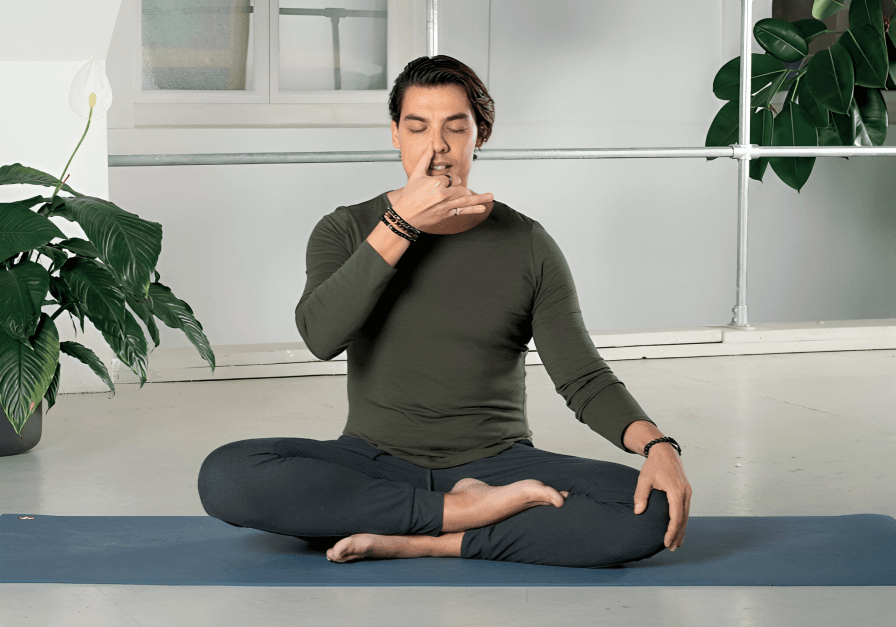
“
Meditation and deep breathing benefits go far beyond just temporary calmness—they’re vital practices that nurture the mind and body. Rooted in ancient traditions and now backed by science, these simple yet powerful techniques are being recognized for reducing stress, improving focus, balancing emotions, and enhancing overall well-being. 1
1
”
Ancient philosopher Lao Tzu believed that breath control helps manage emotions and desires. His teachings on stillness and inward reflection inspire many meditation and deep breathing benefits today. 1
Practicing slow, deep breathing for just ten minutes a day helps lower cortisol levels, the hormone responsible for stress, and improves emotional stability and calmness over time. 2

Meditation and deep breathing benefits include reduced blood pressure by relaxing blood vessels, improving circulation, and calming the nervous system through better oxygen flow and stress reduction.
Deep breathing activates the parasympathetic nervous system, shifting the body from "fight or flight" to "rest and digest," which leads to physical relaxation and mental clarity. 3
Focused meditation and deep breathing improve sleep quality by reducing racing thoughts, decreasing anxiety levels, and slowing the heartbeat for smoother transitions into restful sleep. 4
Regular mindfulness breathing exercises enhance the brain’s grey matter density in areas responsible for memory, compassion, and self-awareness, leading to long-term cognitive benefits. 5
Athletes and performers use deep breathing to stay focused and reduce performance anxiety. This calm focus under pressure is one of the key meditation and deep breathing benefits. 6
Practicing breathing awareness during meditation reduces emotional reactivity, helping individuals respond calmly to daily challenges instead of reacting impulsively or with aggression. 7
Meditation with controlled breathing trains the mind to remain in the present moment, reducing overthinking and rumination, which are major contributors to anxiety and depression. 8

Breathing deeply through the nose filters air better, warms it, and increases nitric oxide levels, which can open airways and reduce respiratory strain during stressful moments.
Group meditation sessions with deep breathing often build social connection and emotional bonding, which support mental health and reduce feelings of loneliness or isolation. 9
Mindful breathing slows brain wave activity, particularly decreasing high beta waves associated with anxiety and increasing alpha waves that are linked to calm, relaxed mental states. 10
Using breathwork during meditation enhances self-regulation, allowing people to pause before reacting to anger, fear, or sadness—fostering emotional intelligence and peaceful behavior. 11
Deep breathing during meditation improves the body’s pH balance by expelling more carbon dioxide, which can help reduce acidosis and create a more balanced internal environment. 12
Meditation guided by breathwork strengthens willpower by improving concentration and building habits of discipline and patience, which are essential for achieving long-term goals. 13
Breath-focused meditation helps reduce symptoms of post-traumatic stress disorder (PTSD) by calming hyperarousal and increasing feelings of safety in trauma survivors over time. 14

Children who practice meditation and deep breathing show improved behavior, attention span, and emotional regulation in school settings, contributing to better academic and social outcomes.
Deep breathing reduces the frequency and severity of panic attacks by grounding attention, calming hyperventilation, and restoring the balance between oxygen and carbon dioxide. 15
Meditation and deep breathing benefits extend into aging, with studies showing slower cognitive decline and improved mood in older adults who practice them regularly. 16
Renowned physician Dr. Jon Kabat-Zinn developed mindfulness-based stress reduction (MBSR), a program using meditation and breathing to manage chronic pain and stress with proven clinical success. 17


